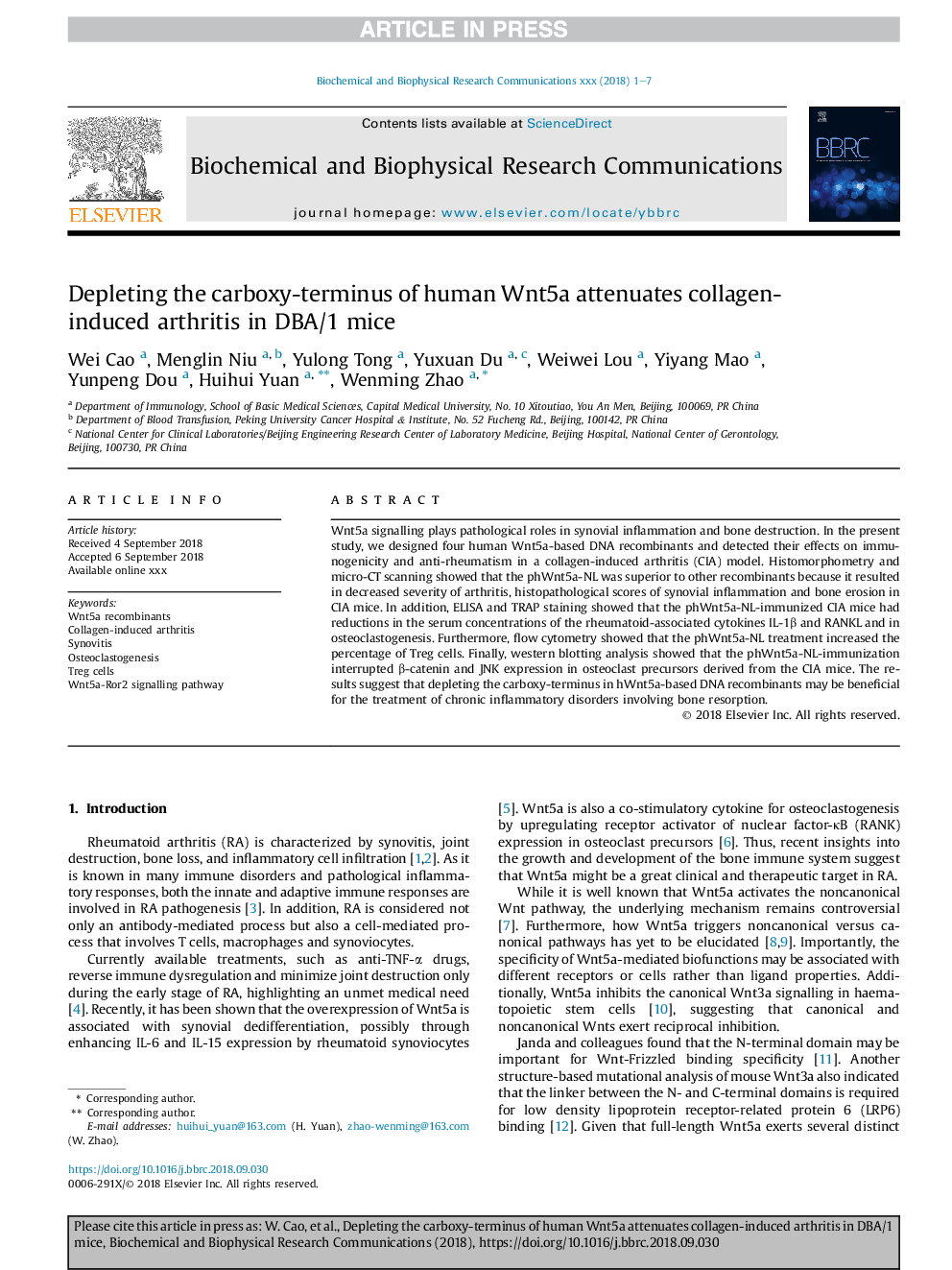| Article ID | Journal | Published Year | Pages | File Type |
|---|---|---|---|---|
| 11015554 | Biochemical and Biophysical Research Communications | 2018 | 7 Pages |
Abstract
Wnt5a signalling plays pathological roles in synovial inflammation and bone destruction. In the present study, we designed four human Wnt5a-based DNA recombinants and detected their effects on immunogenicity and anti-rheumatism in a collagen-induced arthritis (CIA) model. Histomorphometry and micro-CT scanning showed that the phWnt5a-NL was superior to other recombinants because it resulted in decreased severity of arthritis, histopathological scores of synovial inflammation and bone erosion in CIA mice. In addition, ELISA and TRAP staining showed that the phWnt5a-NL-immunized CIA mice had reductions in the serum concentrations of the rheumatoid-associated cytokines IL-1β and RANKL and in osteoclastogenesis. Furthermore, flow cytometry showed that the phWnt5a-NL treatment increased the percentage of Treg cells. Finally, western blotting analysis showed that the phWnt5a-NL-immunization interrupted β-catenin and JNK expression in osteoclast precursors derived from the CIA mice. The results suggest that depleting the carboxy-terminus in hWnt5a-based DNA recombinants may be beneficial for the treatment of chronic inflammatory disorders involving bone resorption.
Related Topics
Life Sciences
Biochemistry, Genetics and Molecular Biology
Biochemistry
Authors
Wei Cao, Menglin Niu, Yulong Tong, Yuxuan Du, Weiwei Lou, Yiyang Mao, Yunpeng Dou, Huihui Yuan, Wenming Zhao,
